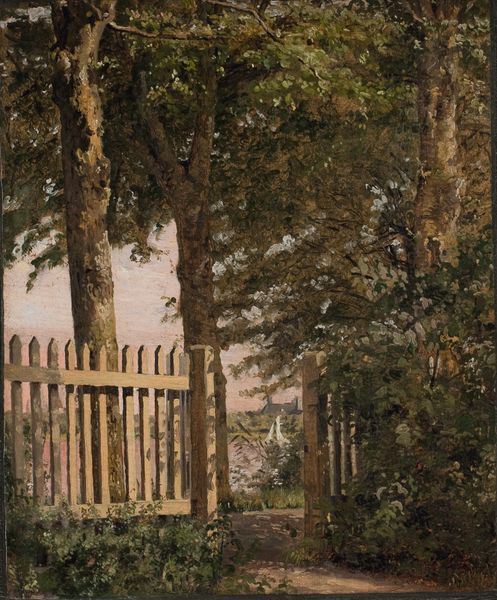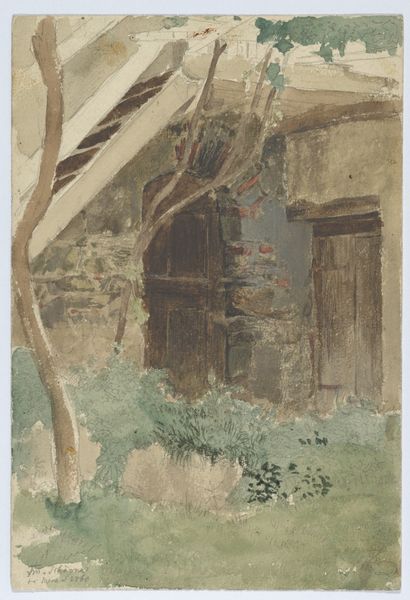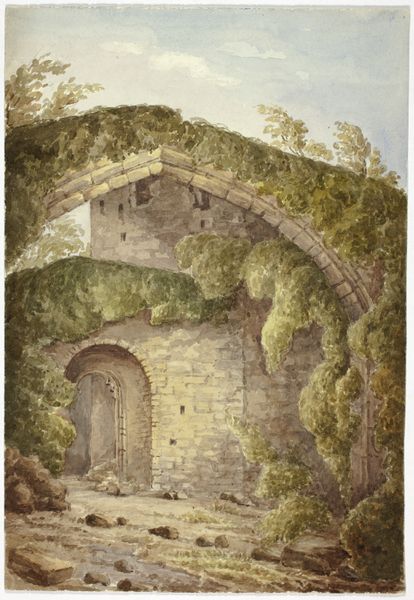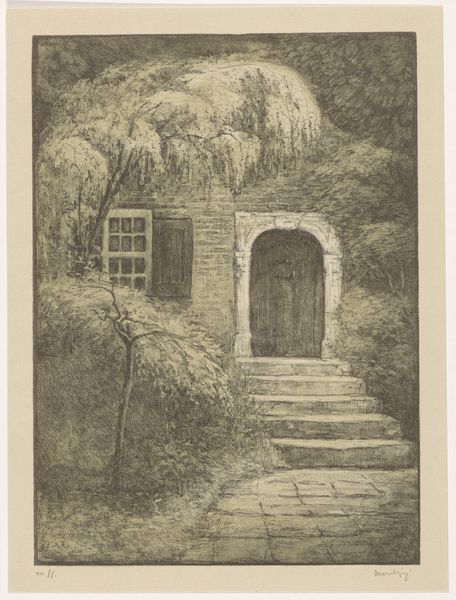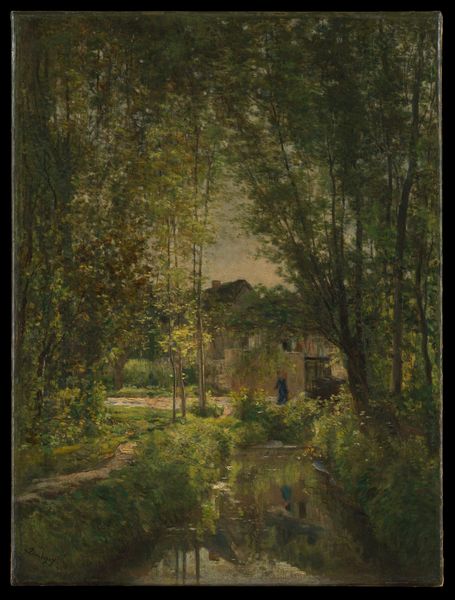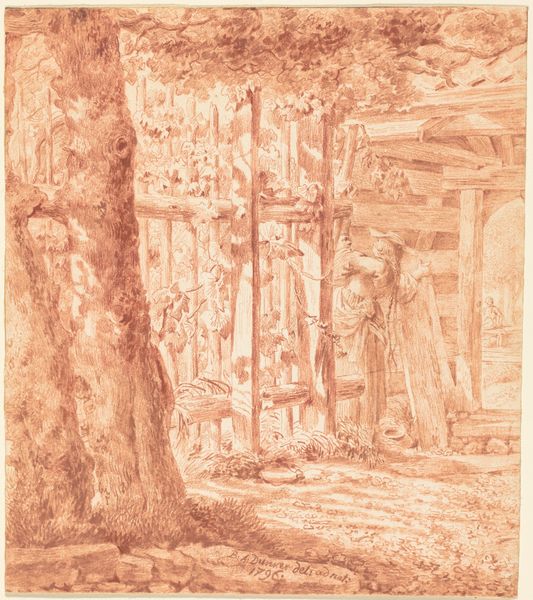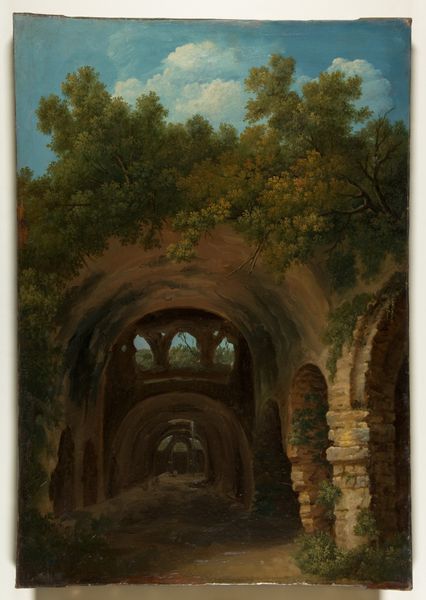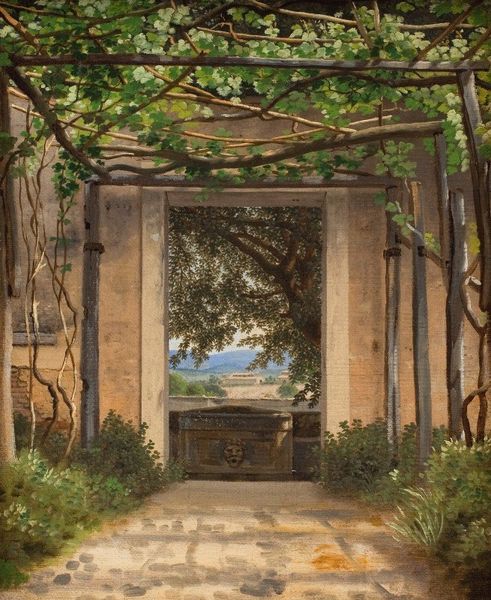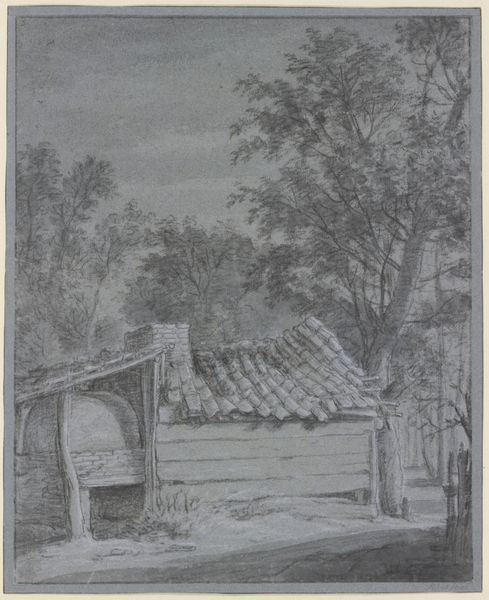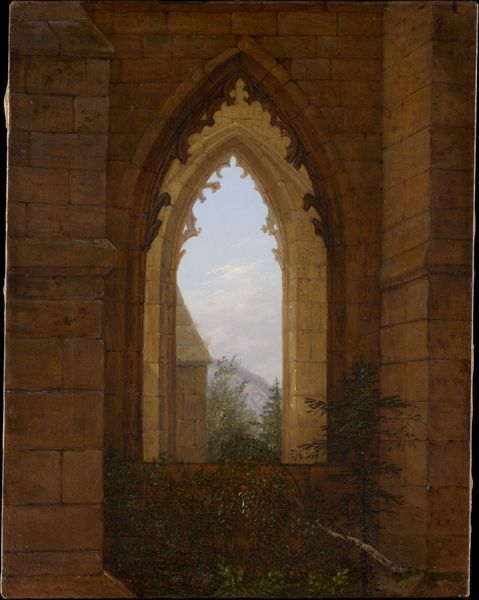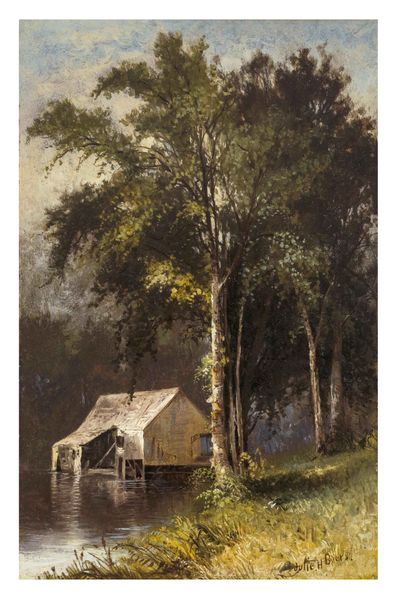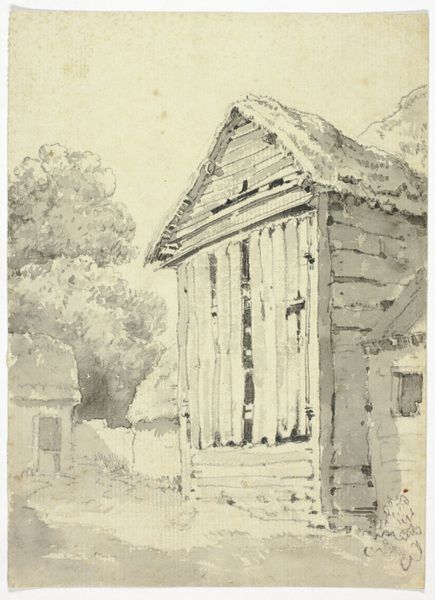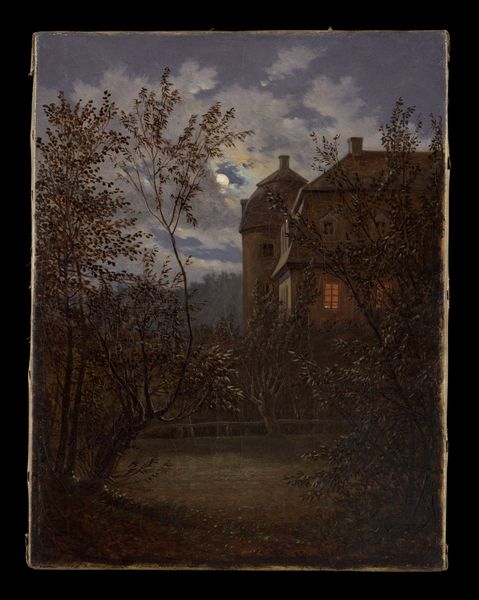
painting, plein-air
#
painting
#
plein-air
#
landscape
#
romanticism
#
watercolor
Dimensions: 11 1/4 x 8 1/4 in. (28.6 x 21 cm)
Copyright: Public Domain
Editor: So, this is Carl Gustav Carus's "An Overgrown Mineshaft," painted sometime between 1819 and 1829, a plein-air watercolor on paper. I'm struck by how nature is reclaiming this space. What strikes you most about this piece? Curator: Well, the historical context is crucial. Think about early 19th-century Romanticism. It wasn't just about pretty landscapes; it was a reaction to industrialization. Mining, while crucial for industrial growth, represented a disruption of the natural order. This mineshaft, now being overtaken by greenery, becomes a potent symbol of that tension, doesn't it? How do you see the composition supporting that reading? Editor: I see that the darkness of the mine is nearly completely concealed behind vegetation; that there is this powerful opposition of the dark and light, hidden and open... so nature is like, winning? Curator: Precisely! And who is the audience for such a work? These weren’t miners. They were upper-class individuals, who could afford artwork, struggling with the societal cost of their material wealth. Carus is making a very pointed statement about the relationship between man, nature, and industrial progress for a specific socio-economic group. Editor: That makes so much sense. So, this isn't just a pretty picture; it’s a political statement disguised as landscape painting! It's easy to look at paintings from this time period through rose-tinted glasses and ignore the critical role they played in culture at the time. Curator: Absolutely. Art doesn’t exist in a vacuum, and landscape is a product of specific world views, social values, and, most importantly, anxieties. Examining it as such, the image evolves to take on even more value in a historical context. Editor: That's fascinating; thanks for making me see it with new eyes.
Comments
No comments
Be the first to comment and join the conversation on the ultimate creative platform.
